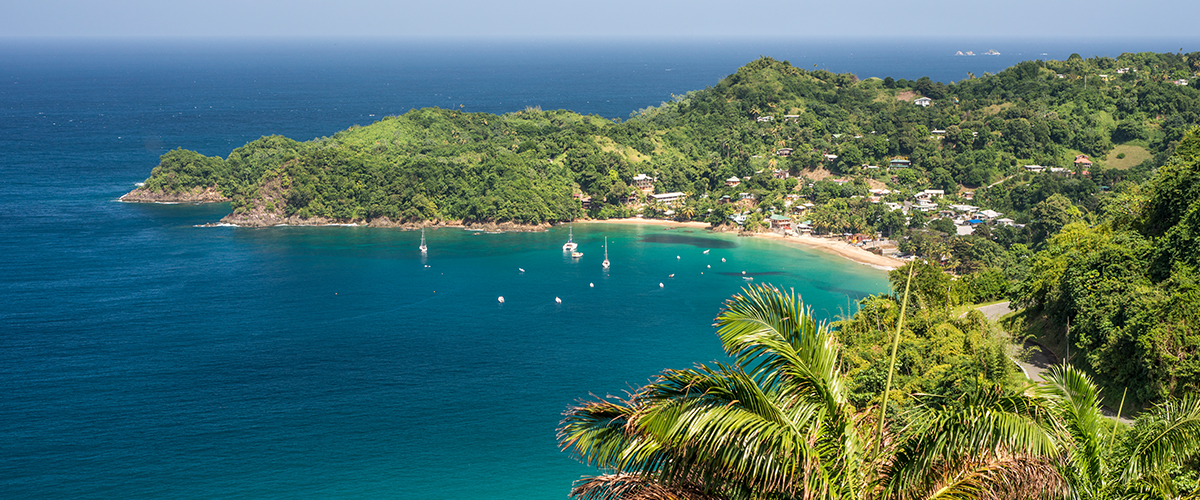Lawmakers in the Caribbean country of Trinidad and Tobago have approved a bill to remove criminal penalties for possession of up to 30 grams of cannabis.
A bill to decriminalize low-level amounts of marijuana was approved by the Trinidad and Tobago House of Representatives last week.
On Dec. 11 the legislation titled the Dangerous Drugs (Amendment) Bill 2019 was discussed by Parliament and passed with full support after eight hours of debate.
BREAKING: Trinidad & Tobago’s Dangerous Drugs (Amendment) Bill, which decriminalizes the possession of certain amounts of cannabis, has been passed in the country’s House of Representatives after over 8 hours of debate & several amendments in the committee stage @CannabisWire. pic.twitter.com/DpvCdgJ9f9
— Clydeen Seeorne McDonald 🇹🇹 (@ClydeenMcDonald) December 12, 2019
Under the amended measure, those found in possession of fewer than 30 grams of cannabis will face no criminal penalty. Those found in possession of between 30 and 60 grams will be found guilty of a summary offense and may face a fixed penalty fine of USD $739.
If the person found guilty pays the fine in the stipulated amount of time, they will not face arrest. However, first-time offenders who fail to pay the fixed penalty could be handed a maximum fine of USD $7,390 or 30 community service hours.
The bill’s aim according to the text is “to reform the criminal justice system by alleviating the burden placed on the system at all levels by the plethora of cases relating to the possession of cannabis; and to reduce the harmful impact of marijuana convictions which has been borne primarily by poor and underprivileged men.”
Dangerous Drugs (Amendment) Bill 2019 Highlights
In addition to decriminalizing small amounts of marijuana, the Dangerous Drugs (Amendment) Bill also does the following:
- Offers a chance to apply for an expungement of previous cannabis convictions and the ability to apply for a pardon.
- Makes smoking cannabis in a public space a criminal offense.
- Prohibits driving motor vehicles, aircraft, or ships under the influence of cannabis.
- Offers the option of community service as an alternative to paying fines.
Moving Forward
Both top officials in the country, the Prime Minister and the Attorney General, have advocated in favor of decriminalization and legalization of cannabis. Faris Al-Rawi, Trinidad and Tobago’s Attorney General said in his opening remarks on the cannabis bills that the country has a cultural connection to cannabis.
“The history of cannabis is rooted in our country and, in fact, in our culture,” Al-Rawi stated. “Cannabis certainly can be traced to several ethnic, religious, and cultural traditions…”
Trinidad and Tobago, located off the northeastern coast of Venezuela, is a dual-island country and one of the wealthiest in the Caribbean. The country with a population of 1.3 million has faced challenges with illegal drug transportation due to its location.
The bill is expected to be voted on at the Senate level by the end of December. A separate piece of legislation, the Cannabis Control Bill (CCB), is also being considered by lawmakers. The proposed bills were introduced to work in tandem. The CCB would make marijuana legal for medical, research, and religious purposes.
The CCB was referred to a Joint Select Committee who was ordered to conduct a report to be delivered Feb. 29 next year. The bill would also create a regulatory body to approve licenses for cannabis businesses.
Last year, 19 Caribbean nations, including Bahamas, Barbados, Haiti, and Jamaica announced they would be reviewing their marijuana policies to possibly reclassify the substance. To date, only the dual-island nation of St. Kitts and Nevis has changed policy.
Watch Trinidad and Tobago Parliament discuss the cannabis bills, here.
More Marijuana News
Learn more about the latest developments in cannabis policy around the world and in the United States by visiting our cannabis policy page.
Want more on cannabis news in business and scientific research? Check out our cannabis news page.






